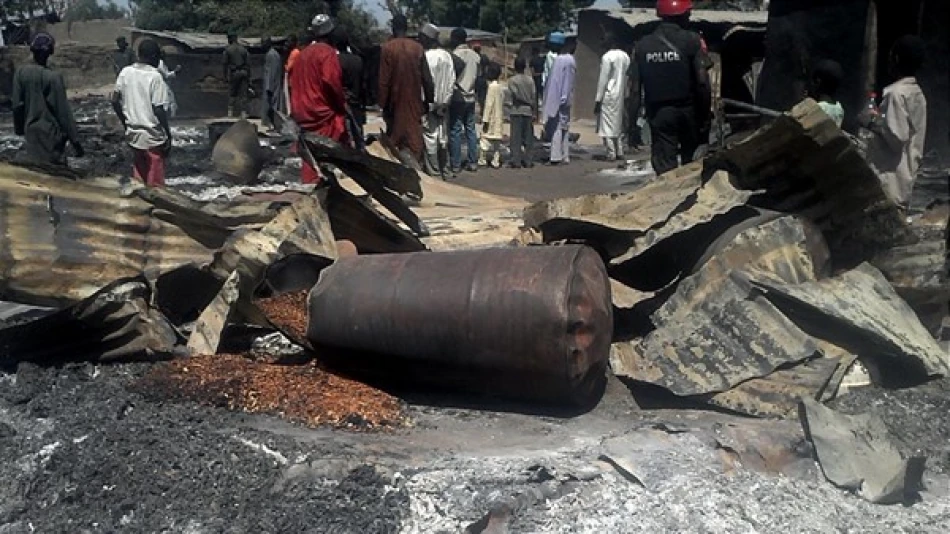
Deadly Ambush Leaves 14 Dead in Nigerian Conflict as Unidentified Assailants Strike
Nigeria's Plateau State Erupts in Deadly Cycle of Violence as Resource Competition Intensifies
Fourteen people were killed in an ambush by unknown gunmen in Nigeria's central Plateau State, triggering immediate reprisal attacks that claimed two more lives. The incident underscores the escalating resource-driven conflicts plaguing Nigeria's Middle Belt, where climate change and population growth are turning traditional land disputes into increasingly deadly confrontations.
Market Day Massacre Sparks Immediate Retaliation
The attack occurred Thursday evening near Mangor village when gunmen opened fire on vehicles returning from the weekly market in Bukos city. Local resident Musa Maran described the assault as an indiscriminate ambush, with attackers firing randomly at the convoy of market-goers.
Local official Nurudeen Hussein Magahi confirmed the death toll Friday morning, noting that victims included men, women, and children—a detail that highlights the civilian nature of the target and suggests the attack was designed to terrorize rather than achieve specific military objectives.
The violence didn't end there. In a pattern that has become tragically familiar across Nigeria's Middle Belt, young men from a nearby village launched a retaliatory attack, killing two more people according to local trader Shanono Othman and prominent Bukos resident Saleh Adamo.
Climate Change Fuels Ancient Conflicts
Plateau State has become a flashpoint for Nigeria's broader herder-farmer conflicts, which have claimed thousands of lives over the past decade. The violence stems from competition between predominantly Muslim Fulani herders and largely Christian farming communities over increasingly scarce land and water resources.
What makes this conflict particularly intractable is its environmental dimension. Climate change and human expansion have steadily reduced available land for both agriculture and livestock, creating a zero-sum competition that traditional conflict resolution mechanisms struggle to address.
The Economics of Environmental Scarcity
The shrinking resource base has transformed what were once manageable seasonal migrations and temporary land-use agreements into permanent territorial disputes. As the Sahel region becomes more arid, herders are forced to move further south into farming areas, while growing populations require more agricultural land to sustain themselves.
This environmental pressure creates economic incentives for violence. Control of fertile land and water sources becomes literally a matter of survival for communities whose traditional livelihoods are under threat.
Nigeria's Security Challenge Deepens
The Plateau State violence reflects Nigeria's broader security crisis, where multiple forms of conflict—from Boko Haram insurgency in the northeast to banditry in the northwest—strain the country's military and police resources. The Middle Belt's herder-farmer conflicts represent perhaps the most complex challenge because they involve competing legitimate claims to resources rather than clear-cut criminal activity.
Unlike terrorist groups or criminal gangs, both herders and farmers have historical claims to land use and represent established communities with political representation. This makes military solutions inadequate and political solutions essential—but also more difficult to achieve.
Regional Implications
Similar resource-driven conflicts are emerging across West Africa's Sahel region, from Mali to Chad, as climate change and population growth create comparable pressures. Nigeria's experience serves as a warning for neighboring countries and demonstrates how environmental stress can quickly escalate into ethnic and religious conflict.
The international community has begun to recognize these "climate conflicts" as a distinct security challenge requiring different approaches than traditional peacekeeping or counter-terrorism operations. Success will likely require combining immediate security measures with longer-term environmental and economic interventions.
Most Viewed News

 Layla Al Mansoori
Layla Al Mansoori






